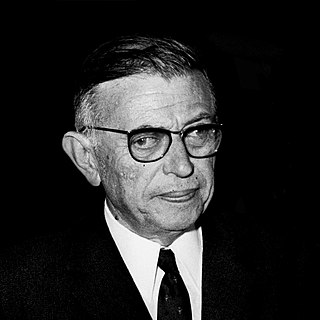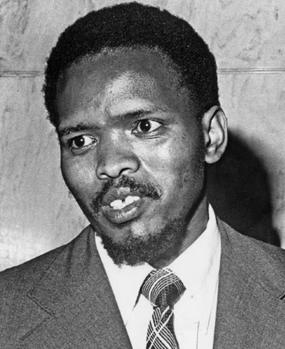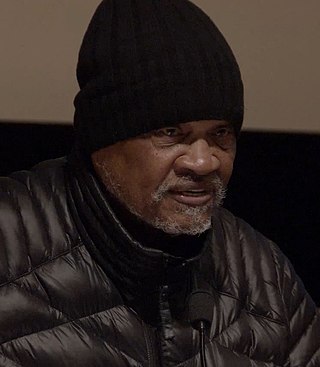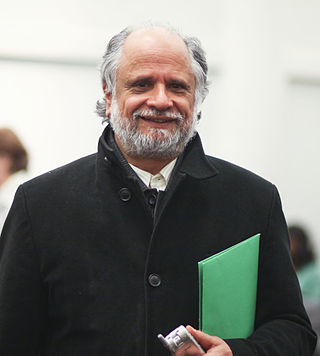
Jean-Paul Charles Aymard Sartre was a French philosopher, playwright, novelist, screenwriter, political activist, biographer, and literary critic, considered a leading figure in 20th-century French philosophy and Marxism. Sartre was one of the key figures in the philosophy of existentialism. His work has influenced sociology, critical theory, post-colonial theory, and literary studies, and continues to do so. He was awarded the 1964 Nobel Prize in Literature despite attempting to refuse it, saying that he always declined official honors and that "a writer should not allow himself to be turned into an institution."

Moby-Dick; or, The Whale is an 1851 novel by American writer Herman Melville. The book is the sailor Ishmael's narrative of the maniacal quest of Ahab, captain of the whaling ship Pequod, for vengeance against Moby Dick, the giant white sperm whale that bit off his leg on the ship's previous voyage. A contribution to the literature of the American Renaissance, Moby-Dick was published to mixed reviews, was a commercial failure, and was out of print at the time of the author's death in 1891. Its reputation as a Great American Novel was established only in the 20th century, after the 1919 centennial of its author's birth. William Faulkner said he wished he had written the book himself, and D. H. Lawrence called it "one of the strangest and most wonderful books in the world" and "the greatest book of the sea ever written". Its opening sentence, "Call me Ishmael", is among world literature's most famous.

Bantu Stephen Biko OMSG was a South African anti-apartheid activist. Ideologically an African nationalist and African socialist, he was at the forefront of a grassroots anti-apartheid campaign known as the Black Consciousness Movement during the late 1960s and 1970s. His ideas were articulated in a series of articles published under the pseudonym Frank Talk.

Mungo Park was a Scottish explorer of West Africa. After an exploration of the upper Niger River around 1796, he wrote a popular and influential travel book titled Travels in the Interior Districts of Africa in which he theorized the Niger and Congo merged to become the same river, though it was later proven that they are different rivers. He was killed during a second expedition, having successfully travelled about two-thirds of the way down the Niger.

Ishmael Scott Reed is an American poet, novelist, essayist, songwriter, composer, playwright, editor and publisher known for his satirical works challenging American political culture. Perhaps his best-known work is Mumbo Jumbo (1972), a sprawling and unorthodox novel set in 1920s New York.
Postcolonial literature is the literature by people from formerly colonized countries, originating from all continents except Antarctica. Postcolonial literature often addresses the problems and consequences of the decolonization of a country, especially questions relating to the political and cultural independence of formerly subjugated people, and themes such as racialism and colonialism. A range of literary theory has evolved around the subject. It addresses the role of literature in perpetuating and challenging what postcolonial critic Edward Said refers to as cultural imperialism.

Homi Kharshedji Bhabha is an Indian-British scholar and critical theorist. He is the Anne F. Rothenberg Professor of the Humanities at Harvard University. He is one of the most important figures in contemporary postcolonial studies, and has developed a number of the field's neologisms and key concepts, such as hybridity, mimicry, difference, and ambivalence. Such terms describe ways in which colonised people have resisted the power of the coloniser, according to Bhabha's theory. In 2012, he received the Padma Bhushan award in the field of literature and education from the Indian government. He is married to attorney and Harvard lecturer Jacqueline Bhabha, and they have three children.

The Black Arts Movement (BAM) was an African American-led art movement that was active during the 1960s and 1970s. Through activism and art, BAM created new cultural institutions and conveyed a message of black pride. The movement expanded from the incredible accomplishments of artists of the Harlem Renaissance.

Mumbo Jumbo is a 1972 novel by African-American author Ishmael Reed, originally published by Doubleday in New York. The novel has remained continuously in print in the decades since its first edition. It was first published in the UK by Allison and Busby, and has been published in translation in several languages, including French, Italian, Spanish, Japanese, as well as a Chinese translation in 2019. The novel was released as a Penguin Modern Classic in 2017.

Kodwo Eshun is a British-Ghanaian writer, theorist and filmmaker. He is perhaps best known for his 1998 book More Brilliant than the Sun: Adventures in Sonic Fiction and his association with the art collective The Otolith Group. He currently teaches on the MA in Contemporary Art Theory in the Department of Visual Cultures at Goldsmiths College, University of London, and at CCC Research Master Program of the Visual Arts Department at HEAD.
Ethnic stereotypes in comics have evolved over time, reflecting the changing political climate.

Stereotypes about any racial or ethnic group can be harmful and perpetuate bias. It's essential to recognize and challenge these stereotypes. Some common stereotypes about African Americans include assumptions about intelligence, athleticism, or socioeconomic status, but it's important to remember that individuals are unique, and generalizations can be misleading.

Elleke Boehmer, FRSL, FRHistS is Professor of World Literature in English at the University of Oxford, and a Professorial Governing Body Fellow at Wolfson College. She is an acclaimed novelist and a founding figure in the field of Postcolonial Studies, internationally recognised for her research in colonial and postcolonial literature and theory. Her main areas of interest include the literature of empire and resistance to empire; sub-Saharan African and South Asian literatures; modernism; migration and diaspora; feminism, masculinity, and identity; nationalism; terrorism; J. M. Coetzee, Katherine Mansfield, and Nelson Mandela; and life writing.

Yellow Back Radio Broke-Down, by the African-American writer Ishmael Reed, is a satirical take on the traditional Western. It is Ishmael Reed's second novel, following The Freelance Pallbearers (1967), and was first published in 1969. It tells the story of the Loop Garoo Kid, an African-American cowboy who practices the religion of Neohoodooism, and describes his struggle against established religion and cultural oppression.
Howard Pease was an American writer of adventure stories from Stockton, California. Most of his stories revolved around a young protagonist, Joseph Todhunter ("Tod") Moran, who shipped out on tramp freighters during the interwar years.
Postcolonialism is the critical academic study of the cultural, political and economic legacy of colonialism and imperialism, focusing on the impact of human control and exploitation of colonized people and their lands. The field started to emerge in the 1960s, as scholars from previously colonized countries began publishing on the lingering effects of colonialism, developing a critical theory analysis of the history, culture, literature, and discourse of imperial power.
Black existentialism or Africana critical theory is a school of thought that "critiques domination and affirms the empowerment of Black people in the world". Although it shares a word with existentialism and that philosophy's concerns with existence and meaning in life, it "is predicated on the liberation of all Black people in the world from oppression". It may also be seen as method, which allows one to read works by African-American writers such as W. E. B. Du Bois, James Baldwin, and Ralph Ellison in an existentialist frame. Lewis Gordon argues that Black existentialism is not only existential philosophy produced by Black philosophers but is also thought that addresses the intersection of problems of existence in black contexts.
In Marxist theory, the Lumpenproletariat is the underclass devoid of class consciousness. Karl Marx and Friedrich Engels coined the word in the 1840s and used it to refer to the unthinking lower strata of society exploited by reactionary and counter-revolutionary forces, particularly in the context of the revolutions of 1848. They dismissed the revolutionary potential of the Lumpenproletariat and contrasted it with the proletariat. Among other groups, criminals, vagabonds, and prostitutes are usually included in this category.
Most words of African origin used in English are nouns describing animals, plants, or cultural practices that have their origins in Africa. The following list includes some examples.












